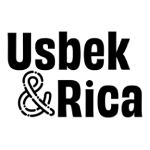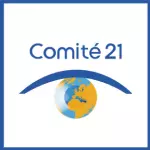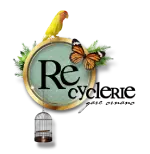“+1, ecology turned into action” is a consultation process involving Veolia stakeholders from various backgrounds (employees, clients, shareholders, society, planet) that aims to find a common path towards ecological transformation.
We are convinced that companies must reinvent their place in society and that in order to do so they need to explain the nature of their contribution to a broader ecosystem of stakeholders. Companies are now expected to be real forces for reinvention in a shared world. This requires them to build new interfaces with society: new ways of watching and listening, new methods of relating to others, new ways of contributing to their surrounding context. It is this shared continual improvement approach, with and for all of its stakeholders that enables a company to be useful and therefore to prosper.
It is in this context that the “+1, ecology turned into action” scheme was conceived, initiated in 2021 by Veolia in partnership with Usbek & Rica, bluenove and “La REcyclerie”, and supported by “Comité 21”.
What is +1?
• A collective of representatives of Veolia stakeholders (employees, clients, shareholders, society, planet) from different backgrounds whose aim is to "get to know each other better in order to work better together", in a truly decompartmentalised way, with a view to implementing their ideal of ecology turned into actions. The members of the “+1” collective, like the organisers themselves, sign a charter of commitments specifying the rights and obligations of all concerned.
• A cooperation method between stakeholders on a clearly defined issue related to the implementation of the ecological transformation. This method, which can be applied to different contexts and challenges (at the scale of a contract, a project, a Business Unit), is available in open source to enable other companies and organizations to implement it.
• “+1 actions” (for each issue), which is behind the creation of new groups like “+1 Arianeo”, the unique opening of the governance of a contract to stakeholders in Nice; “+1 staff representatives”, to support labor dialogue, or “+ 1 Inspire 24-27” dedicated to the GreenUp strategic program
How does +1 work?
+1 is an amplifier of cooperation and ideas, but also an operational tool. It has been thought as a 3 successive and complementary phases path to experiment the benefits of cooperation with a broader stakeholders ecosystem:
- #1 Listening: an active listening to go beyond ideological and hierarchical divides in order to rise above one’s own interest
- #2 Prioritising: to define useful and high-impact actions and solutions to implement in priority in the interest of the greatest number.
- #3 Committing: to foster ecological transformation within the organizations.
Each session is made up with:
• An inspirational keynote speech, a time for inspiration and exploration of the challenges of the topic addressed.
• A collective intelligence workshop divided into subgroups to propose practical actions with a significant positive impact to be implemented.
Each working session of the collective results in a restitution in order that all the ideas and avenues for action benefit the greatest number of stakeholders.
A proven system from 2021 reinforced in 2022 and 2023
In 2021, the design and validation of the system:
“+1, ecology turned into action” mobilized a collective of 50 Veolia stakeholders during 3 working sessions at “La REcyclerie” in Paris on the following themes: #1 Listening, #2 Deciding and #3 Training. Three essential steps to building sustainable stakeholder relationships in the cause of ecological transformation. Discover the +1 logbook.
In 2022, his test on 3 key subjects of ecological transformation:
Three meetings have been proposed on the challenges of territorial resilience, innovation and employment, and inclusion.
In 2023, its deployment:
- At the scale of a contract: the contract of Arianeo, the new green energy production center of the Nice Metropolitan Area, have devised an open and participative governance structure inspired by Veolia’s stakeholder dialogue initiative, “+1, ecology turned into action”. An Environmental and Societal High Council bringing together the stakeholders of the contract* has been created and will report on the social, societal, and environmental impact of the actions initiated as part of the activity at the site.
*the Nice Côte d’Azur Metropolitan Area, neighborhood committees, Banque des Territoires, and Veolia
- At the scale of a strategic program: During the 18 months it took to draw up the GreenUp strategic program, nearly 200 representatives of the Group’s five categories of stakeholders in eight of its geographical areas were invited on three occasions to discuss Veolia’s strategic policies, in person. The purpose of these meetings was to listen to the participants and discuss the definition of ecological transformation, their expectations of Veolia in this area and the most important areas for transformation (see the video on the results of the stakeholders' consultation).
At the scale of dialog with employee representatives: As part of the definition of its strategic program GreenUp 2027, Veolia wanted to broaden and share its thoughts with employee representatives from the France and Europe offices, meeting according to the +1 method. Two meetings were held to gather their expectations, their concerns and their priorities for the strategic program, particularly concerning social and human resources policies.
In parallel, to maintain the link with the original collective, thematic masterclasses have been proposed:
- One on cooperation and innovation, with Julie Jouvencel, CEO of SoScience, Timothée Duverger, lecturer at Sciences Po Bordeaux and Martin Duval, co-founder and co-chairman of bluenove.
- An other one on stakeholder dialogue for sustainable finance, with Anne-Catherine Husson-Traoré, Managing Director of Novethic, Philippe Hermann, Director of Sustainable Finance at Veolia and Elouan Heurard, ESG Climate and Biodiversity Analyst at Candriam.
A WORD FROM “COMITÉ 21”: “The importance of dialogue with stakeholders”
Comité 21 was established nearly 30 years ago to promote dialogue between various stakeholders on societal issues, and particularly on the environment. Our 450 members, including companies, local authorities, associations, higher education institutions and citizens, share the conviction that, through multi-stakeholder dialogue, solutions can be found to the challenges we are currently facing. The desire for such dialogue is also becoming increasingly evident in our societies, as are the demands being made on companies. Ecological citizenship is evoked everywhere, including within companies, which are being called upon to open up their governance to stakeholders. Regulatory changes are also pushing them in this direction.
However, establishing dialogue requires a change in culture and an openness that cannot be improvised. It requires adapted methodologies and time. Through the think tank “Companies and Stakeholders: New Paths to Resilience and Governance” led by our organization with Des Enjeux et des Hommes in 2020 and 2021, in partnership with Veolia, we have developed solutions to help us move forward in this direction.* A new economy to serve the common good will be comprised of companies whose decisions are made in collaboration with the stakeholders concerned. The cultural and operational path is ambitious, which is why we have formulated 18 proposals for better integrating stakeholders into corporate governance.
The strategy proposed by the “+1” initiative of getting to know each other better in order to work together better, is an essential prerequisite for success in this regard. This approach makes companies more open to their entire ecosystem of stakeholders than the initiatives more commonly seen in businesses. Not all participants are selected, but some have expressed an interest in establishing a dialogue with companies, which must step out of their comfort zone and offer a new form of dialogue aimed at co-construction. This bold approach by companies will result in new alliances and the transformation of the economy.
* Comité 21 and Des Enjeux et des Hommes.
“International benchmark for stakeholder dialogue practices.” February 2021
“Promoting dialogue with stakeholders to improve resilience.” June 2021
“18 proposals for opening up corporate governance to a company’s stakeholders.” September 2021
The partners

Veolia aims to become the benchmark company for ecological transformation. Present on five continents, the Group designs and deploys useful, practical solutions for the management of water, waste and energy that are contributing to a radical turnaround of the current situation.

Usbek & Rica is an online magazine that explores, questions, sometimes affirms, but above all seeks to engage everyone in a process of forward-looking reflection on issues of identity, climate, governance and our relationship to technology. How does it do this? By presenting a contributory medium of communication with a fresh vision, designed to be accessible to the many; by creating a forum for mutual aid that is free and open to all; by launching large citizens’ lotteries of ideas to test what form the future may take in real terms. If the debate of ideas is at the heart of Usbek & Rica, this is a medium that above all wishes to be useful and to be committed to active participation.

bluenove, founded in 2008, is a leader in massive collective intelligence methods and technologies for companies and the public sector.

La REcyclerie is a converted train station in the Paris suburbs that was rehabilitated in 2014 as a meeting place for ecologically aware experimentation. It educates and mobilizes the wider public to the challenges and alternative solutions of a more responsible and sustainable society through an enjoyable, non-pressurising approach. This home of ecology for all combines a café/canteen, an urban farm, a repair workshop, a library and a programme of ecologically-aware cultural events. Veolia has been its main partner since its opening.

Le Comité 21 is a French association for sustainable development which contributes to transforming society towards a sustainable model based on the UN 2030 Agenda and the 17 Global Sustainable Development Goals (SDGs). Both a “think tank” and a “do tank”, Comité 21 is developing the networking of participants through its more than 400 members, and is creating the conditions for an effective partnership between the public authorities, the private sector and civil society.
More information on the news of "+1, ecology turned into action"
- In Nice, the new green energy production center, Arianeo, introduces a governance structure open to civil society
- Masterclass +1: Stakeholder dialogue for sustainable finance
- How to cooperate between stakeholders to accelerate ecological transformation?
- The “+1” collective: How to make employment and social integration a driving force for ecological transformation?
- “Accelerating innovation for ecological transformation”
- What governance of companies and organisations to foster territorial resilience?


